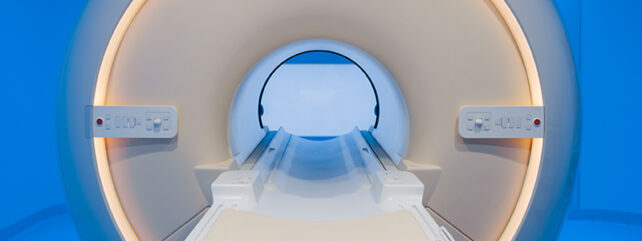A Brazilian man has passed away from injuries he received last month when a concealed handgun he was wearing discharged near an operating MRI machine, shooting him in the abdomen.
The 40-year-old lawyer and vocal supporter of gun ownership is reported to have retained the weapon in spite of verbal and written requests to remove all metal objects prior to accompanying his mother into the scanning room.
Leandro Mathias de Novaes took his mother to the Laboratorio Cura in São Paulo, Brazil, for an MRI ( magnetic resonance imaging) scan on January 16.
Clinical staff are reported to have instructed both de Novaes and his mother to leave all metal items outside of the scanning room as a matter of standard procedure.
"We would like to emphasize that all accident prevention protocols were followed by the Cura team, as is customary in all units," a spokesperson for the facility told The Telegraph.
"Both the patient and his companion were properly instructed regarding the procedures for accessing the examination room and warned about the removal of any and all metallic objects."
The reason for this simple act is fairly straight-forward. To image a body, an MRI uses anywhere from 1.5 to 3.0 (and sometimes more) tesla of magnetism to force the protons in water molecules to point roughly the same direction.
A low-energy pulse of electromagnetism gives the particles a jiggle, which depending on the surrounding materials take varying amounts of time to return to their starting point. This contrast in proton wiggles is then interpreted to provide a detailed picture of your insides.
To give some idea of just how strong that magnetic field is, a fridge magnet is in the range of a few thousandths of a tesla. Some powerful rare-earth magnets can be around a single tesla in strength.
So 3 to 7 tesla isn't Earth-shaking. But it is plenty enough for large ferromagnetic items – those made of material that react relatively uniformly in a strong magnetic field – to be given a good pull.
A freak accident in 2001 caused fatal head injuries in a child when an MRI dislodged a metal oxygen tank from across the room.
In cases of smaller items, as with jewelry for example, the strong magnetic field could create an electric current in the material that potentially conducts enough heat to deliver a nasty localized burn.
Exactly what happened in de Novaes's case might never be known. Tucked away hidden in his waistband, the gun fired when the machine was activated, delivering a wound that would tragically take his life after several weeks at the São Luiz Morumbi Hospital.
As an advocate for gun ownership with thousands of followers on his social media accounts, de Novaes was clearly no stranger when it came to handling a firearm. According to police records, he was licensed to carry it, and the weapon was registered.
Whether it was an issue of complacency or forgetfulness isn't clear, but the incident serves as a tragic reminder of the fact that MRIs and guns simply don't mix – and not the first either.
A 2002 article in the American Journal of Roentgenology recounts an incident of an off-duty police officer attending an outpatient imaging center in New York State, during which a miscommunication led to the patient taking his firearm into the scanning room.
While placing the gun on top of a cabinet about a meter (3 feet) from the machine, the weapon was pulled from his grasp into the scanner, where it discharged into a wall.
Meanwhile, in 2013, an on-duty officer's handgun was pulled from his hand while investigating a late-night report of a burglary at an Illinois MRI clinic, with the firearm remaining stuck to the machine.
In 2018, a man received leg injuries in a Long Island clinic when a handgun in his pocket fired on entering an MRI scanning room.
Though short, this list of dangerous MRI episodes could grow as gun ownership rises in the US, with the possibility of more injuries or even deaths. Several hundred people die each year in the US following the unintentional use of a firearm.
Short of using metal scanners on patients prior to entering an MRI, there is little medical staff can do but tap the sign. 'All metal' means guns too, and not following those rules can sadly have deadly consequences.
